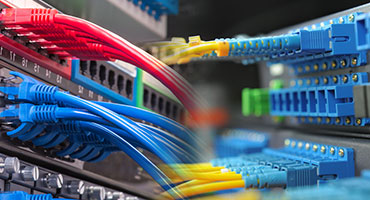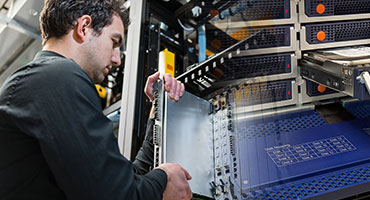How AI and Machine Learning are Evolving DevOps

Artificial intelligence and ML can help us take DevOps to the next level through identifying problems more quickly and further automating our processes.
The automation wave has overtaken IT departments everywhere making DevOps a critical piece of infrastructure technology. DevOps breeds efficiency through automating software delivery and allowing companies to push software to market faster while releasing a more reliable product. What is next for DevOps? We need to look no further than artificial intelligence and machine learning.
Most organizations quickly realize the promise of AI and machine learning, but often fail to understand how they can properly harness them to improve their systems. That isn’t the case with DevOps. DevOps has some natural deficiencies that are difficult to solve without the computing power of machine learning and artificial intelligence. They are key to advancing your digital transformation. Here are three areas where AI and machine learning are advancing DevOps.
1. Pattern analysis of complex applications
As our technology stack grows, the complexity of our systems become increasingly magnified. Consider a distributed application architecture where IoT devices are contacting microservices running on a Kubernetes cluster. There are numerous potential points of failure, and data points are continuously logging every transaction. Sifting through massive data stores to pinpoint the root cause of an issue can be extremely time intensive for the team. Humans weren’t built for this kind of work. This is where artificial intelligence and machine learning thrive.
With machine learning, we can build models to analyze patterns hidden within these mountains of data. It can recognize abnormalities, identify the underlying cause and provide suggestions for potential optimization. Through this predictive analysis, machine learning can not only help us identify problems eroding our systems, but also trap issues before they become problems. By performing early prediction and notification, we can address concerns as they step their way through the development pipeline, so few ever reach production.
2. Tracking user behavior and security
AI and machine learning can analyze usage data and security threats to help us optimize our applications. It can inspect user behavior to identify what application modules and functions are doing the heaviest lifting so we can focus our efforts on improving the user experience in these areas. We can also compare current releases to previous ones to be alerted to subtle performance degradations. By continuously evaluating user behavior, AI can help us keep user experience at the forefront of our release planning.
In tracking security threats with AI, we can readily see where hackers are trying to breach our systems so we can fortify our defenses. If a denial-of-service attack is directed at the organization, we can have a decision engine kick in to minimize the impact on the business. Rogue hackers aren’t the only threat AI can help reign in. It can churn through data in real time to spot fraudulent activity tied to unusual data patterns. There are no moral victories discovering $100,000 has been lost when an employee has been syphoning it off over the past year.
3. Increasing automation
DevOps brings automation and consistency to our release process. Try as it might, there are still areas that require a person to manage the process. With AI, we can continue to automate tedious, mundane tasks that are rife for human error. This automation frees up valuable IT resources to focus on innovative solutions.
Not only can we let AI automate our DevOps process, we can also take it a step further to self-heal problems without human intervention. Not ready to let the computers manage themselves? AI can recommend solutions for writing more efficient and performant code. It can even prioritize the anticipated impact of a change so the development team has direction when sizing up what should be addressed next.
Some may say, we are essentially talking about AIOps. To a degree, this is true. Yet, the argument can be made that clear boundaries don’t exist marking where DevOps ends and AIOps begins. The overlap between the two can be significant, and AIOps is quickly becoming an indispensable part of the toolkit for DevOps practitioners.
This isn’t Star Trek. We aren’t pondering about the technology of tomorrow. We can implement artificial intelligence and machine learning into our DevOps environment today. Vendors are actively creating impressive tools to integrate with DevOps processes. Some IT departments are hoisting this responsibility on themselves, creating custom AI solutions tailored specifically to their business needs.
Regardless of how you approach it, artificial intelligence and machine learning are no longer just trendy buzzwords to throw around at the water cooler. They can seriously augment your team by helping you solve problems quicker, predict performance problems before they arise and can even resolve issues before they have a chance to become problems. We are still scratching the surface of what is possible when you couple DevOps with AI. It's time to embrace those possibilities.




